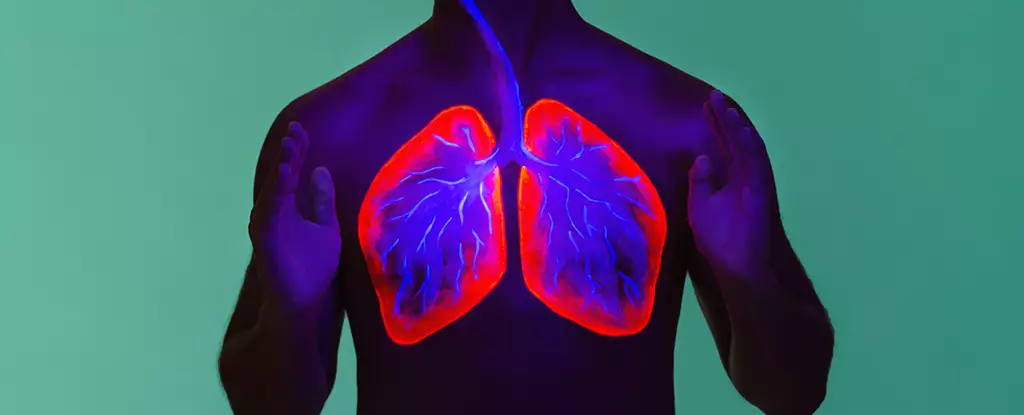When one thinks about the risk factors for lung cancer, the first culprits that often come to mind are smoking and air pollution. However, recent research emerging from the University of Florida and the University of Kentucky is shifting this narrative, unveiling a compelling connection between dietary choices and lung cancer development. The findings challenge conventional wisdom and suggest that our daily food intake might be a more significant factor than previously assumed.
The spotlight of this research is on glycogen, a molecule traditionally associated with energy storage. Elevated levels of glycogen were found in patients with lung adenocarcinoma, the most common form of lung cancer, accounting for a staggering 40% of global cases. While it has long been established that smoking is the leading cause of lung cancer, this research illuminates a potential avenue for understanding how the food we consume may also play a critical role in this deadly disease.
The Mechanism of Glycogen
Glycogen is the body’s way of storing excess energy derived from carbohydrates. As we indulge in high-fat and high-carb diets, glycogen levels can rise significantly. In a revealing experiment, mice fed such diets exhibited accelerated tumor growth compared to their counterparts on balanced diets. The implications of these findings are profound; glycogen seems to not only fuel our muscles during physical exertion but also fires up the growth of cancerous cells in the lungs.
Molecular biologist Ramon Sun, aligned with this research, argues that the relationship between glycogen and lung cancer illustrates a larger trend regarding energy metabolism in cancer. It’s this energy reserve that provides a competitive advantage to cancer cells, allowing them to proliferate aggressively and outpace the body’s immune defenses. This understanding posits glycogen as a double-edged sword—necessary for our physical performance yet potentially fatal when mismanaged through unhealthy dietary choices.
A Groundbreaking Approach
The study employs a cutting-edge technique known as spatial metabolomics, which allows for detailed analysis of small molecules in tissue samples. This innovative approach provides researchers with the ability to visualize metabolic changes in cancerous tissues with remarkable clarity. Such a method illuminates previously obscured molecular interactions, paving the way for breakthrough discoveries in cancer research and treatment strategies.
The significance of discovering these molecular patterns cannot be overstated. They not only aid in understanding how specific cancers develop but also could lead to new pathways for prevention. As researchers continue to explore the link between glycogen and lung cancer, the hope is that strategies can be devised to mitigate this risk, notably through dietary management.
Beyond the Research: Implications for Public Health
What does this mean in a broader context? As Sun suggests, our approach to cancer prevention could benefit from an integrated model that mirrors the success of anti-smoking campaigns. This means advocating for healthier dietary practices as a fundamental preventive measure against diseases like lung cancer. Public awareness and effective policy initiatives could transform how communities approach their diets, potentially leading to a significant reduction in cancer cases.
This research serves as a poignant reminder of the essential role our diets play in overall health. Just as we have come to understand the links between processed meats, alcohol consumption, and various cancers, we must now grapple with the implications of our everyday meals on our lung health. The growing body of evidence linking Western-style diets to lung cancer signifies a pivotal moment in nutritional science and public health.
A Call to Action
While it’s vital to continue unraveling the complex biological underpinnings of cancer development, it’s equally important to act. The findings provoke thought about how we can reshape our lifestyles to minimize health risks. The vital role of glycogen in lung cancer not only broadens our understanding of cancer risk factors but also undeniably emphasizes the importance of diet—a subject often overshadowed in the conversation about lung cancer.
Ultimately, as the research advances, it becomes increasingly clear that recognizing and addressing dietary influences might be a key piece of the cancer prevention puzzle, pushing us toward a healthier future. This exploration heralds a new paradigm in thinking about lung cancer, from a strictly environmental perspective to a multifaceted view that includes our plates as part of the equation.


Leave a Reply